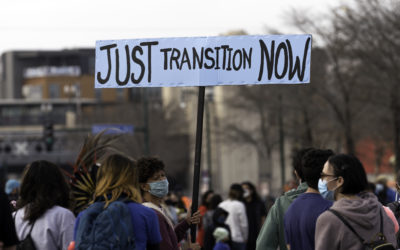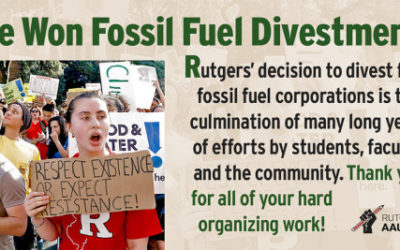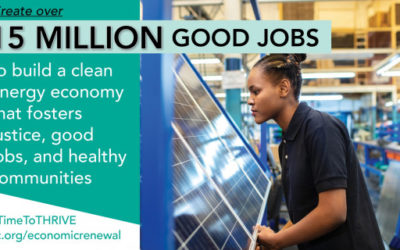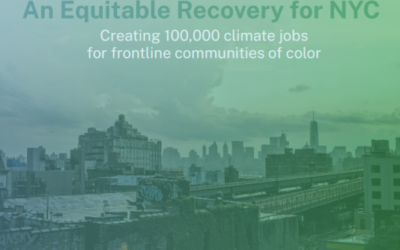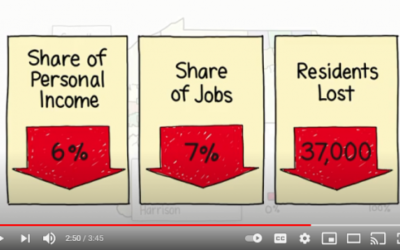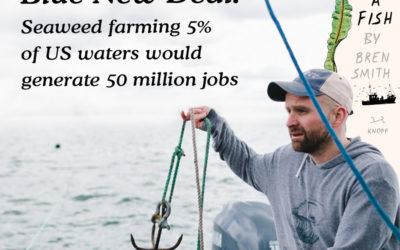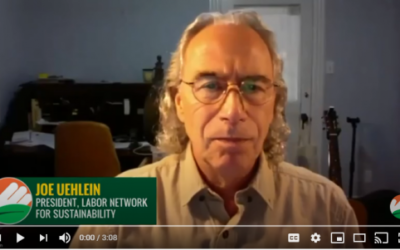Climate Strikes
Transit Equity Network Calls on Congress to Pass Legislation that Truly Supports Accessible, Safe and Equitable Transit in Support of H.R.3744
FOR IMMEDIATE RELEASE July 20, 2021 Contact: Judy Asman (She/her) 714-651-6170 NATIONWIDE – The network of transit riders, community organizations, environmental groups, and labor unions responsible for organizing Transit Equity Day annually on Rosa Parks’ birthday to...
How to Protect Workers While Protecting the Climate
To protect against catastrophic global warming, the United States is preparing to rapidly reduce the burning of fossil fuels–coal, oil, and natural gas. As we transition to a climate safe economy, many people ask, “What about the workers who will lose their jobs in fossil fuels and other polluting industries?”
Can Carbon Capture Saver Our Climate—and Our Jobs?
As storms, heat waves, fires, floods, and other devastating effects of global warming have grown, more and more people have become convinced of the need to reduce greenhouse gases (GHG) emitted into the atmosphere. The Paris Agreement defined the goal of limiting global average temperature increase to 1.5 degrees Celsius above pre-industrial levels. At the April Climate Summit President Joe Biden announced the U.S. will target reducing emissions by 50-52 percent by 2030 compared to 2005 levels and reaffirmed the U.S. commitment to reach net zero emissions by 2050.1 These goals indicate what the consensus of climate scientists says is necessary to ward off the most destructive possible effects of climate change. The question remains how to realize them.
Rutgers Divests!
Members of Rutgers American Association of University Professors – American Federation of Teachers (AAUP-AFT) are joining with student allies in celebrating a vote to divest from fossil fuels by the Rutgers Board of Governors and Board of Trustees.
How to “Build Back Better”
Graphic: Sierra Club. Anyone interested in how to address the concerns of both labor and environmentalists in upcoming legislation should take a look at the new Sierra Club report “How to Build Back Better: A 10-year Plan for Economic Renewal.” Although the Sierra...
Ride Your Bike for Climate, Jobs and Justice in NYC–April 24
How do we spread the word about what it will take to have an equitable recovery from the COVID-19 pandemic and the crises of climate, jobs, healthcare, racism and democracy that it has so aggravated? Members of New York’s large DC37 union have an innovative way: The...
Does Shale Gas Extraction Grow Jobs?
Over the past decade, many communities, especially impoverished rural communities in Appalachia, have been pitched the idea that extracting natural gas would be the solution to their economic problems. Vast amounts of gas were indeed extracted. But a new report from the Ohio River Valley Institute shows that the benefits did not flow to local communities
Making “Build Back Better” Better: Aligning Climate, Jobs, and Justice
The purpose of this paper is to provide a framework for conversation in the LNS community and the broader labor and climate movements. We hope it will be a living document that continues to evolve as the knowledge and insight of additional dialogue partners contribute to its development.
The Blue New Deal: Making a Living on a Living Ocean
During CNN’s Democratic presidential town hall on the climate crisis in September, a one-time oysterman from Connecticut told candidate Sen. Elizabeth Warren:
My farm was destroyed by two hurricanes. Now warming waters and acidification is killing seed, coast to coast and reducing yields. Those of us that work on the water need climate solutions, and we need them now. The trouble is, the Green New Deal only mentions our oceans one time. This is despite the fact that our seas soak up more than 25% of the world’s carbon. So what’s your plan for a Blue New Deal for those of us working on the ocean? How do we make sure we can make a living on a living planet?
How and Why We Formed LNS
We formed the Labor Network for Sustainability as a vehicle through which we could press for bold climate action in ways that address labor concerns without sacrificing what science is telling us is necessary, and what’s needed to address income inequality and worker power. LNS was founded on the belief that the crises of income inequality and climate change can and must be addressed at the same time, and in so doing we will advance the goals of both movements and offer the best hope for averting climate catastrophe.
